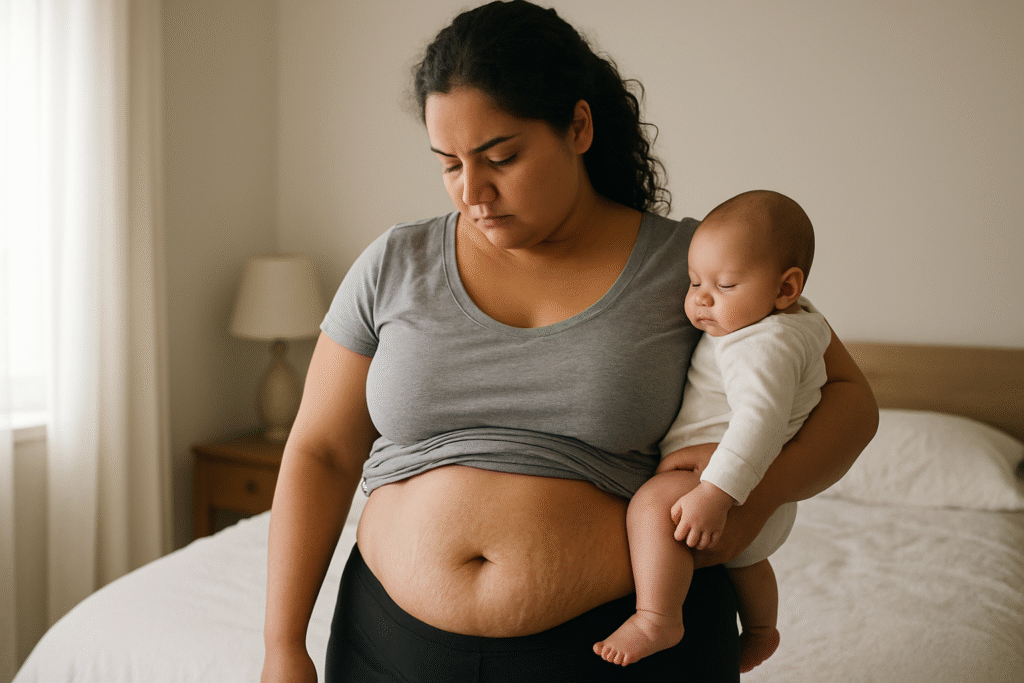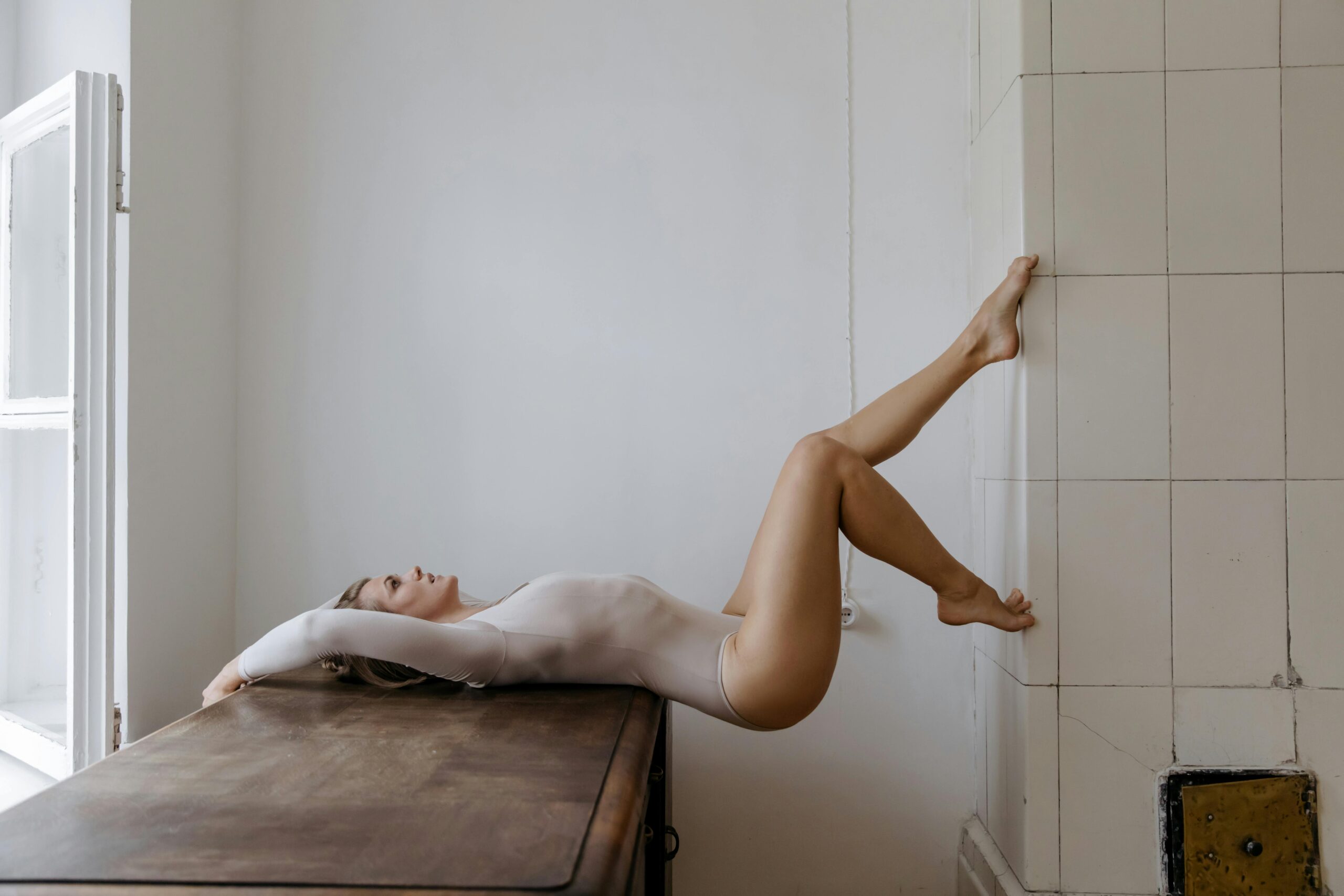Bringing a new life into the world is a powerful, life-altering experience. The postpartum period, often referred to as the fourth trimester, is a time of recovery, adjustment, and profound change for new mothers. While the focus should be on healing, bonding with the baby, and adapting to a new routine, many women find themselves facing an unexpected and often overwhelming challenge: pressure to “bounce back” to their pre-pregnancy body.
Society tends to glorify rapid physical recovery after childbirth, often showcasing celebrity moms who seemingly return to their former physique in just a few weeks. This unrealistic standard can lead to feelings of inadequacy, anxiety, and body dissatisfaction among new mothers. In reality, the postpartum body is a testament to strength, resilience, and growth—it deserves care, appreciation, and compassion, not scrutiny.
In this comprehensive article, we’ll explore the roots of postpartum body image pressure, its emotional and psychological effects, and most importantly, how to navigate this period with self-love, patience, and a healthy mindset. Whether you’re a new mother, a partner, or someone supporting a mom, this guide offers insights and strategies to foster a more positive and nurturing postpartum experience.
Understanding Postpartum Body Image Pressure
The pressure to quickly lose pregnancy weight and return to a “fit” or “slim” body stems from various cultural, social, and media-driven messages. For decades, women’s bodies have been objectified and judged based on appearance rather than function. During pregnancy, there is often admiration for the growing belly and maternal glow, but the narrative shifts drastically after birth. Suddenly, the same body that nurtured and birthed a child is expected to “snap back” into a narrow beauty ideal.
Social media has amplified this pressure. While some online communities promote body positivity and postpartum realism, others perpetuate comparison and shame. Filtered photos, influencer fitness routines, and diet ads create a curated reality that doesn’t reflect the physical and emotional reality of most mothers.
Moreover, well-meaning comments from family, friends, or even healthcare providers can unintentionally reinforce harmful expectations. Phrases like “you don’t even look like you had a baby!” or “you’ll get your body back soon” suggest that a woman’s current body is something to fix rather than celebrate.
How the Postpartum Body Changes

After childbirth, the body goes through many natural changes as it begins the process of healing and returning to a non-pregnant state. These changes vary from person to person and depend on factors like type of delivery, breastfeeding, genetics, pre-pregnancy fitness, and overall health.
Common physical changes include:
- A softer or protruding belly due to abdominal muscle separation (diastasis recti)
- Stretch marks on the stomach, breasts, hips, and thighs
- Loose skin and changes in skin texture
- Breast engorgement or sagging
- Weight retention, especially in the hips, belly, and thighs
- Hair thinning or shedding (postpartum alopecia)
- Changes in posture and joint stability
All of these changes are normal, expected, and temporary to varying degrees. But when women are constantly exposed to messages suggesting that their new body is undesirable or flawed, they may struggle to see these changes as natural.
The Emotional Impact of Body Image Pressure
Negative body image in the postpartum period can have far-reaching consequences. Physically recovering from childbirth is already challenging, but when emotional distress is added to the mix, the journey becomes even harder.
Many women experience:
- Low self-esteem or shame about their appearance
- Anxiety or obsessive thoughts about weight and shape
- Avoidance of mirrors, photos, or intimacy
- Withdrawal from social situations
- Pressure to diet or exercise prematurely
- Conflicts with partners or feelings of being misunderstood
In some cases, body dissatisfaction contributes to postpartum depression or anxiety, making it even more important to address the issue early and compassionately.
Why “Bouncing Back” Shouldn’t Be the Goal
The idea of “bouncing back” is misleading and unfair. It implies that a woman’s worth is tied to how quickly she can erase the evidence of childbirth from her body. But pregnancy and childbirth are monumental events. They change your organs, hormones, muscles, and identity. Expecting to revert to a previous version of yourself—physically or emotionally—is not only unrealistic but also dismissive of what your body just accomplished.
Instead of focusing on getting your “old body” back, consider what your body did for you and your baby. It stretched, grew, nourished, and birthed life. That deserves honor and gratitude, not judgment.
Reframing the Conversation Around Postpartum Bodies
Changing the narrative starts with redefining success in the postpartum period. Instead of seeing the body as a problem to fix, view it as a vessel that is healing, adapting, and evolving. Shifting the focus from appearance to function can be incredibly empowering.
Ask yourself:
- Is my body helping me care for my baby?
- Am I able to move, breathe, and rest?
- Am I showing myself kindness and compassion?
If the answer to these questions is yes, then your body is doing exactly what it needs to do.
Tips to Cope with Body Image Pressure After Birth
- Unfollow accounts that promote unrealistic standards
Curate your social media feed to include body-positive, honest motherhood accounts. Seeing real postpartum bodies can normalize your own experience and provide reassurance. - Focus on how you feel, not how you look
Check in with your energy levels, sleep quality, and emotional well-being rather than the number on the scale. - Wear clothes that fit and make you comfortable
Avoid squeezing into pre-pregnancy clothes if they no longer feel good. Maternity wear, stretchy fabrics, and supportive bras can make a big difference in your confidence and mood. - Talk about your feelings
Share your experiences with friends, partners, or a mental health professional. Talking reduces shame and often reveals that others feel the same way. - Be mindful of your inner dialogue
Notice when you’re being critical or harsh toward yourself. Practice reframing those thoughts with neutral or kind alternatives. - Celebrate what your body has done
Write a letter to your body, thanking it for carrying your baby. Take photos not to criticize but to document your strength and journey. - Take your time with exercise
Movement can be healing, but it’s essential to wait until your body is truly ready. Focus on gentle stretches, walks, or postnatal yoga if approved by your doctor. - Avoid crash diets
Your body needs nutrients and calories to heal and possibly breastfeed. Rapid weight loss can harm your health and energy levels. - Surround yourself with supportive people
Choose to spend time with those who value you beyond your appearance and respect your pace. - Educate yourself
Learning about normal postpartum recovery and hearing stories from other mothers can ease the pressure of thinking you’re alone in your feelings.
The Role of Partners and Loved Ones
Partners play a significant role in how new mothers perceive themselves. Loving, nonjudgmental support can make a huge difference. Compliments should focus on her strength, patience, and care, not just her appearance. Offer help without waiting to be asked, be patient with emotional ups and downs, and validate her experience.
Avoid saying things like “You’ll lose the weight soon” or “You looked better before.” Even if well-intended, these comments reinforce the idea that her current body is temporary and less valuable.
When to Seek Professional Help
If body image struggles begin to interfere with your daily life, relationships, or emotional stability, it may be time to seek support from a therapist. Cognitive-behavioral therapy (CBT), body image counseling, and support groups for new mothers can all provide helpful tools.
Look for signs like:
- Persistent negative thoughts about your body
- Obsession with weighing yourself or dieting
- Avoidance of mirrors or photos
- Loss of interest in social interaction or intimacy
- Thoughts of self-harm or hopelessness
Seeking help is not a sign of weakness—it’s a proactive, courageous choice for your health and your baby’s well-being.
Final Thoughts: Your Body Is Not a Problem to Fix
Postpartum body image pressure is real and pervasive, but it doesn’t have to define your experience. Your body has done something extraordinary—it brought life into the world. That journey deserves to be honored, not erased.
Healing takes time, and every woman’s path is different. Be gentle with yourself, celebrate small wins, and surround yourself with people who see your worth beyond the surface. You are more than your body—you are a mother, a caregiver, a whole person.
Let’s change the conversation from “getting your body back” to embracing the body you have now—strong, capable, and deserving of love.

